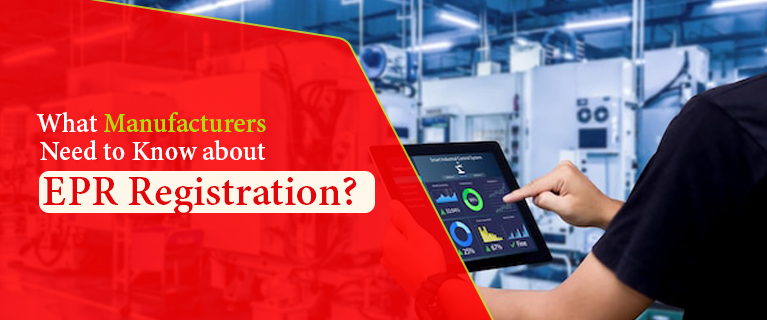Benefits Of EPR Certification For Manufacturers And Producers
EPR (Extended Producer Responsibility) certification is a growing trend in sustainable waste management practices. This blog aims to delve into the benefits that manufacturers and producers can gain from obtaining EPR certification. By taking on the responsibility for their products throughout their lifecycle, these entities can enhance their environmental performance, comply with regulations, improve brand reputation, and contribute to the development of a circular economy. Let's explore the numerous advantages that EPR certification offers to manufacturers and producers.
1. Environmental Performance and Waste Reduction
One of the primary benefits of EPR certification is its positive impact on environmental performance. Manufacturers and producers play a significant role in reducing waste generation and promoting recycling and proper disposal practices. By implementing EPR programs, these entities take responsibility for managing their products, including their end-of-life stages. This commitment encourages the adoption of sustainable design practices, waste reduction strategies, and the use of eco-friendly materials. By minimizing waste and optimizing resource use, manufacturers and producers can contribute to the conservation of natural resources and the reduction of pollution.
2. Compliance with Regulations and Legal Requirements
EPR certification ensures that manufacturers and producers comply with regulations and legal requirements related to waste management. Many countries and regions have enacted legislation that mandates or incentivizes the implementation of EPR programs. By obtaining EPR certification, manufacturers and producers demonstrate their commitment to meeting these obligations. Compliance not only helps avoid penalties but also strengthens relationships with regulatory bodies and fosters a culture of responsible production and consumption.
3. Brand Reputation and Consumer Trust
EPR certification plays a vital role in building brand reputation and gaining consumer trust. In an era where sustainability is a growing concern for consumers, companies that demonstrate a commitment to environmental responsibility are likely to be viewed more favourably. EPR certification serves as evidence of a manufacturer or producer's dedication to sustainable practices, making them more attractive to environmentally conscious consumers. A positive brand reputation built on EPR certification can lead to increased customer loyalty, market differentiation, and a competitive edge in the industry.
4. Cost Savings and Resource Efficiency
Implementing EPR programs and obtaining certification can result in cost savings and improved resource efficiency for manufacturers and producers. By adopting strategies to reduce waste generation and optimize material use, companies can minimize raw material costs, packaging expenses, and waste management fees. Additionally, EPR certification encourages the adoption of recycling and recovery initiatives, which can generate secondary revenue streams and reduce reliance on virgin resources. These cost-saving measures, combined with improved resource efficiency, contribute to the long-term sustainability and profitability of manufacturers and producers.
Read Also This - Role of Government in Implementing the EPR RegistrationConclusion
EPR certification offers numerous benefits for manufacturers and producers, ranging from improved environmental performance and compliance with regulations to enhanced brand reputation, consumer trust, and cost savings. By embracing the principles of extended producer responsibility, companies can contribute to a more sustainable future while reaping the advantages of responsible waste management. As EPR certification continues to gain prominence worldwide, it is becoming an essential aspect of corporate social responsibility and a strategic differentiator for manufacturers and producers committed to sustainability.




Comments
Post a Comment